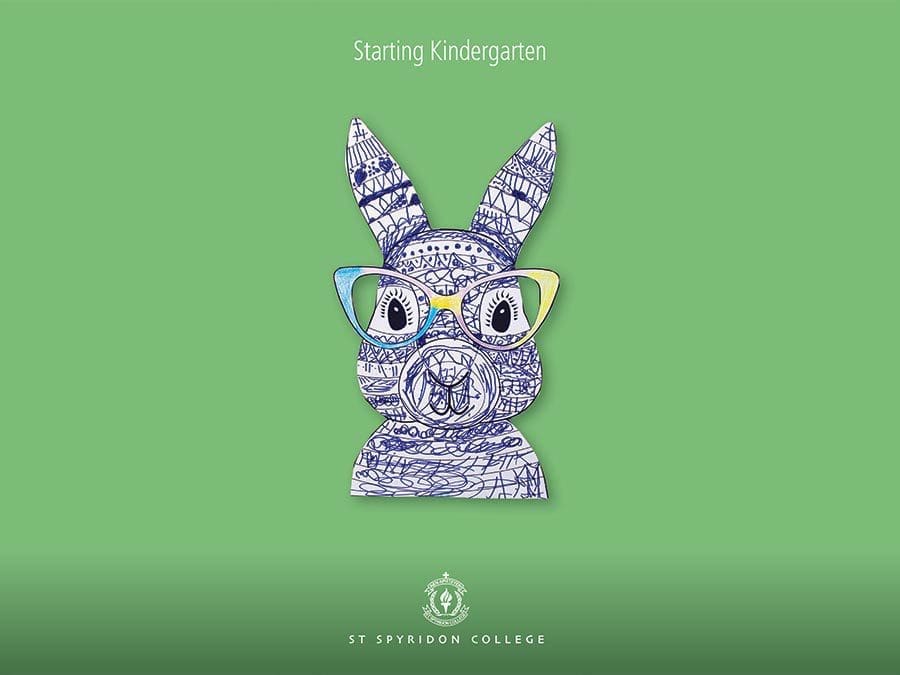
Kindergarten marks the commencement of formal schooling. At St Spyridon College we endeavour, together with the parents, to make the beginning of the child’s learning journey, both joyful and rewarding. St Spyridon College is a place of light and laughter, where students are seen as capable and powerful; driven to explore the world with curiosity and a sense of wonder.
St Spyridon Teachers tap into children’s natural attributes to make their learning meaningful and purposeful. They create an environment that inspires children to work together and alone, to develop new skills, to pose questions, to test our ideas, to make connections, to express feelings and to reflect on their experiences.
St Spyridon College children have a strong sense of belonging and self-worth. This is because they are surrounded by a loving network of adults who know them well and who respond to their interests, needs, hopes and potentials. They are supported by the strong partnership between their parents and their teachers. We look forward to sharing your child’s journey through Kindergarten with you.
For more information or enrolments please contact Angela Kringas on 02 9311 3340 or enrolments@stspyridon.nsw.edu.au
The Hundred Languages
The child
is made of one hundred.
The child has
a hundred languages
a hundred hands
a hundred thoughts
a hundred ways of thinking
of playing, of speaking.
A hundred always a hundred
ways of listening
of marvelling of loving
a hundred joys
for singing and understanding
a hundred worlds
to discover
a hundred worlds
to dream…
Loris Malaguzzi
Frequently Asked Questions (FAQ)
How do I know my child is ready to start school?
Below is a list of skills and abilities that children usually have at the start of Kindergarten.
Language Skills
- Speak clearly and in complete sentences about familiar objects and events
- Answer and ask simple questions
- Follow two or three-step instructions
- Say or sing the alphabet
- Sit still to listen to a story and recall events and characters
- Recognise the first letter of their own name
- Recognise and can name colours and shapes
- Express their needs
Personal Social Skills
- Adapt to unfamiliar settings and new experiences
- Deal with challenges
- Finish a task and tidy up afterwards
- Play co-operatively with other children
- Share and take turns
- Wait patiently for their turn
- Use the toilet independently and wash their own hands
- Express feelings and preferences
Physical Skills
- Use scissors correctly to cut along a straight line
- Enjoy a variety of indoor and out door play
- Run, jump, catch, balance and dance
- Put on and take off jumpers, shoes and socks independently
How can I help my child be ready for school?
Give your child responsibility
Start thinking about activities your child can do for themselves, or help others to do.
For example, encourage your child to dress themselves.
- Can they do buttons?
- Can they put on their socks and shoes?
Encourage your child to help you with simple tasks related to “school” routines, for example:
- Pack their lunch box
- Prepare their sandwiches
- Pick out a piece of fruit
- Fill their drink bottle etc.
Other simple tasks they can do:
- Put their toys away at the end of playA broad front veranda for outdoor activity under shelter (Reggio “porch”)
- Help you set the table
- Take their plate to the sink
Establish a routine
A regular and predictable routine will help your child feel safe and secure. Set up a regular pattern of play-time, followed by quiet reading time, packing school bag, followed by their bedtime routine.
You may wish to include a simple prayer before bedtime.
Create a hub
Create opportunity each day for your child to talk to you about their day. Let them lead the conversation. Celebrate and praise things they felt particularly proud of. Help them to understand any challenges they faced. Move them to a “happy space” at the close of their conversation with you.